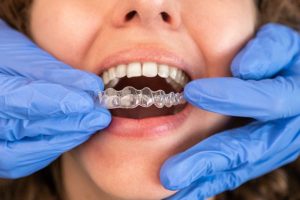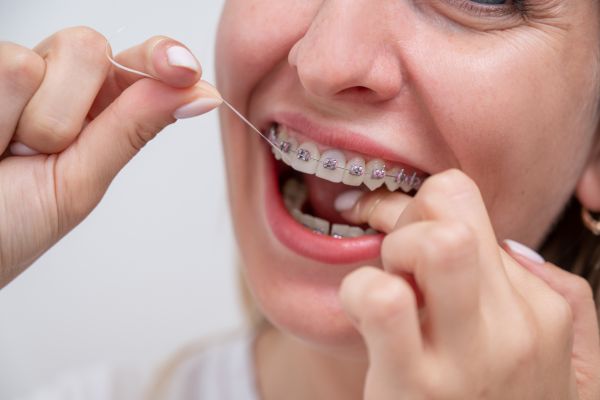A dental emergency during treatment can be a stressful experience for anyone. Whether you’re halfway through a routine procedure or in the middle of something more complex, it’s important to remain calm and know how to respond. In this article, we’ll take a closer look at what steps to take in the event of a dental emergency and how to ensure that you’re receiving the best care possible, whether you need an emergency dentist in Shrewsbury or are dealing with Invisalign Shrewsbury issues.
What Is a Dental Emergency?
Any dental operation can suddenly result in a dental emergency. Some situations can be resolved quickly, while others may require immediate intervention to prevent further damage or discomfort. Some examples include:
- Sudden pain or swelling: You may experience severe pain or swelling during treatment, which could indicate an infection or injury.
- Broken or loose fillings or crowns: Sometimes, fillings or crowns may come loose during dental work.
- Severe bleeding: In some cases, excessive bleeding could occur, especially after extractions or gum treatments.
- Discomfort with braces or Invisalign: While generally effective, Invisalign or braces can sometimes cause unexpected problems during treatment, leading to an emergency.
It’s important to understand that while some of these issues may seem minor, they can lead to serious complications if left unaddressed. Let’s take a look at what to do when faced with these emergencies.
Steps to Take During a Dental Emergency
1. Stay Calm and Assess the Situation
The first thing to do in any emergency is to remain composed. Panic might exacerbate the problem and impair your capacity to think rationally. Breathe deeply and consider how serious the problem is. Consider this:
- Is the pain manageable or unbearable?
- Is there significant bleeding?
- Is the treatment you’re receiving causing any discomfort?
Once you’ve determined the severity of the issue, it’s easier to decide whether it’s something that can be handled with home remedies or whether you need to see an emergency dentist in Shrewsbury.
2. Contact Your Dentist Immediately
Your first line of action should be to contact your dentist. If you’re in the middle of treatment, let them know about the problem immediately so they can take steps to address the issue. Most dental practices have emergency contact details, especially for situations like this.
For example, if you’re undergoing a procedure with Invisalign, some issues may arise, such as discomfort or ill-fitting aligners. In such cases, an emergency dentist in Shrewsbury familiar with Invisalign treatment can provide you with guidance on how to adjust your aligners or relieve any discomfort you’re experiencing.

Image Source- Emergency Dentist Wigan Shrewsbury
3. Follow the Dentist’s Instructions
Once you’ve contacted your dentist, they will provide specific instructions based on your situation. They may ask you to perform simple actions like rinsing your mouth with warm salt water to help manage pain or swelling. If your treatment involves Invisalign and your aligners aren’t fitting properly, your dentist might advise you to remove the aligner and follow a temporary solution until you can be seen.
Following these instructions can help mitigate the problem and prevent further damage or discomfort.
4. Take Over-the-Counter Pain Relief (If Recommended)
If you’re experiencing discomfort, over-the-counter pain relief can often help alleviate the pain until you’re able to get proper treatment. Ensure you take pain relievers as directed by your dentist. Ibuprofen or paracetamol is often used, but be sure to check with your dentist for specific recommendations.
However, don’t take painkillers without consulting your dentist, especially if you’re dealing with issues related to the procedure itself, such as a complication with Invisalign treatment.
5. Rinse With Warm Salt Water
Rinsing your mouth with warm salt water can help to reduce swelling and alleviate discomfort, particularly if you’ve experienced trauma to your mouth, like a loose crown or broken filling. Saltwater is a natural disinfectant and can also promote healing in the event of gum irritation or minor cuts caused by dental instruments.
For situations involving Invisalign, a saltwater rinse can also ease irritation to the gums that might occur when wearing the aligners.
6. Preserve Any Lost Dental Work
If you’ve lost a filling, crown, or other dental work during treatment, try to keep it safe. Place it in a clean container and bring it with you when you visit the dentist. In some cases, your dentist may be able to reattach or replace the lost work, minimising any damage caused by the loss.
For Invisalign wearers, if a part of your aligner has broken, keep the broken pieces with you. The dentist can evaluate the issue and determine whether the aligner needs to be replaced or fixed temporarily until you can get a new one.
7. Seek Immediate Treatment if Necessary
In some cases, a dental emergency during treatment requires immediate care. For example, if you are experiencing severe pain, excessive bleeding, or signs of infection, you should seek immediate medical attention. Your dentist may need to intervene quickly to prevent further damage, treat an infection, or address an issue such as a dental abscess.
For those receiving treatments like invisalign Shrewsbury any issue with severe pain or infection related to the aligners should not be ignored. Your dentist will want to assess the situation and offer prompt care.

Image Source- Emergency Dentist Wigan Shrewsbury
Preventing Dental Emergencies During Treatment
While emergencies can happen, there are steps you can take to reduce the likelihood of experiencing one during dental treatment.
1. Regular Check-Ups
Frequent dental examinations guarantee that possible problems are identified early on, before they develop into more significant ones. Checkups become even more crucial if you’re receiving treatments like Invisalign. To prevent discomfort, your dentist can monitor your progress and modify the aligners as necessary.
2. Follow Your Dentist’s Aftercare Instructions
After your treatment, it’s essential to follow all aftercare instructions carefully. This might include avoiding certain foods, taking pain relief as advised, or caring for your aligners properly. For Invisalign users, wearing your aligners as directed is key to avoiding potential emergencies.
3. Be Honest About Discomfort
If you experience discomfort during treatment, don’t hesitate to tell your dentist. Many issues can be resolved quickly if they are identified early. Whether it’s a problem with the fit of your Invisalign trays or discomfort from a dental procedure, being open with your dentist ensures that any concerns are addressed before they escalate.
Conclusion
Dental emergencies during treatment can be unnerving, but with the right approach, you can ensure that the issue is addressed quickly and efficiently. Remember, staying calm, contacting your dentist immediately, and following their advice will go a long way in managing the situation. For those dealing with Invisalign Shrewsbury or any other dental procedures, a trusted dentist will help guide you through the process. At EDS, we prioritise your dental health and comfort, offering comprehensive care in emergencies and routine procedures alike.
 :
https://www.pinterest.com/
:
https://www.pinterest.com/

